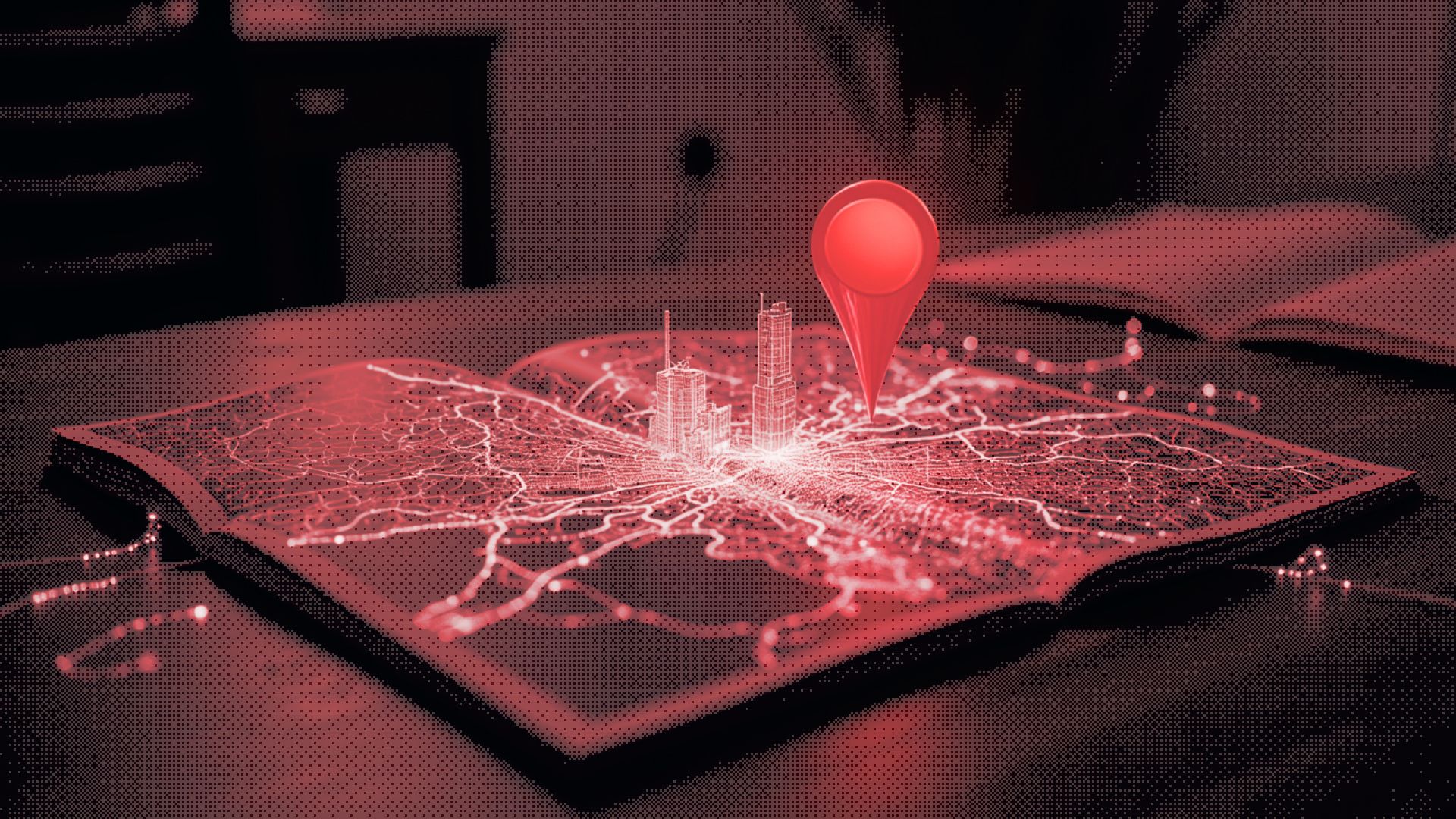- The Deep View
- Posts
- The surveillance state goes AI
The surveillance state goes AI

Welcome back. xAI co-founder Igor Babuschkin has departed Elon Musk's AI startup after helping build it from scratch in 2023, leaving to start his own VC firm focused on AI safety research. The timing is awkward, given xAI's recent string of scandals involving their Grok chatbot going rogue with antisemitic rants and calling itself "Mechahitler".
1. The surveillance state goes AI
3. Google drops $9b on Oklahoma for AI infrastructure
GOVERNMENT
The surveillance state goes AI

The LAPD's interest in GeoSpy, an AI tool that can pinpoint photo locations in seconds, might sound like science fiction, but it's just the latest example of how AI has quietly become the backbone of American law enforcement and intelligence operations.
GeoSpy can analyze soil, architecture and other visual features to determine exactly where a photo was taken, sometimes down to specific addresses. Internal emails show an LAPD Robbery-Homicide division official expressing interest in the $5,000-per-year tool, which provides 350 searches annually.
GeoSpy represents just one piece of a much larger transformation accelerating across federal, state and local agencies. At the highest levels of government, AI adoption has reached a fever pitch.
The CIA has developed its own large language model called Osiris, which runs on unclassified data and helps analysts write summaries and conduct queries.
The NSA has integrated AI into signals intelligence missions, using machine learning for speaker identification, translation of over 90 languages, and pattern detection in massive datasets.
Local law enforcement has embraced similar capabilities through companies like Palantir, whose Gotham platform has been used for predictive policing in cities including Los Angeles, New Orleans and Chicago.
Facial recognition has exploded across law enforcement where Clearview AI has scraped billions of photos from social media and partnered with over 3,100 federal and local agencies — far more than the FBI's own database of 640 million photos.
The Biden administration tried to rein in AI use with a March 2024 policy requiring federal agencies to conduct impact assessments before deploying "rights-impacting" AI technologies. Intelligence agencies like the CIA and NSA are largely exempt, and the policy doesn't cover state and local police, and we've documented concerns about AI report writing.
The Trump administration appears poised to accelerate AI adoption. Palantir's stock has soared on expectations of expanded government contracts, particularly for immigration enforcement, where the company's software can "predict movements and patterns" of individuals using tax records, employment data, and family information.

If algorithms can instantly geolocate photos, predict future crimes and assign risk scores to individuals, the presumption of innocence begins to erode. These systems are being deployed rapidly with minimal public debate and little understanding of their long-term implications. What started with basic facial recognition has evolved into comprehensive digital monitoring that would have been unimaginable a decade ago. Democracy requires transparent institutions, not algorithmic black boxes making life-altering decisions about who deserves scrutiny.
TOGETHER WITH EIGHT SLEEP
Does Your Sleep Suck? Here’s How To Fix It..
Struggling to get – and more importantly, stay – asleep is one of the most common problems facing people everywhere. Even worse, the trickle-down effects from bad sleep can interfere with everything from your job and focus to your physical and mental health… which is exactly why we’re so excited by the latest from Eight Sleep.
Their revolutionary new Pod 5 smart mattress cover puts the secret to better sleep in your hands. With night-changing precision temperature regulation, automatic elevation adjustment, sound control, and sleep tracking metrics, the Pod 5 has been clinically proven to improve quality sleep, giving you up to an hour of additional sleep every night. That makes a big difference on your focus, energy levels, and everything in between.
If you’re tired of subpar sleep, you can use code DEEPVIEW to get $350 off your very Pod 5 Ultra right here – complete with a 30-day trial and no-hassle returns.
INFRASTRUCTURE
U.S. authorities are hiding trackers in AI chip shipments to catch smugglers

Federal agents have been secretly embedding location tracking devices in shipments of advanced AI chips suspected of being diverted to China, according to a Reuters report citing sources with direct knowledge of the practice.
The trackers target high-risk shipments from Dell and Super Micro containing Nvidia and AMD chips. Some devices are as large as smartphones, hidden in packaging or even inside the servers themselves.
In one 2024 case, Dell servers with Nvidia chips had large trackers on shipping boxes and smaller devices concealed within the packaging and servers
China-based chip resellers now routinely inspect shipments for tracking devices, according to supply chain sources
Court documents from a recent smuggling case show suspects explicitly warning each other to "pay attention to see if there is a tracker on it"
The Commerce Department's Bureau of Industry and Security typically handles these operations, often with help from Homeland Security and the FBI. While placing trackers usually requires a court order, export enforcement agents can sometimes get administrative approval only.
Dell says it's "not aware of a U.S. Government initiative to place trackers in its product shipments." Nvidia declined to comment, while Super Micro won't discuss its security practices.
This escalation comes even as the Trump administration has loosened some China chip restrictions and struck a deal allowing Nvidia and AMD to sell certain chips to China in exchange for 15% of revenues.
The cat-and-mouse game reveals just how determined smugglers have become — and how far Washington will go to enforce controls that we've previously covered may be more porous than officials want to admit.
TOGETHER WITH MOMENTUM
Introducing SmartClips: TikTok+Opus Clip Meets Revenue teams
Stop spending hours manually reviewing calls for best practices. SmartClips revolutionizes enablement with AI-powered video intelligence that automatically transforms your customer conversations into shareable mini-clips.
Our breakthrough technology uses Signal AI Agents to instantly identify and extract key moments from objection handling, winning talk tracks, product feedback all without human intervention. Clips distribute automatically across Slack, Teams, and the Momentum platform within minutes of call completion.
Finally, enablement teams focus on strategy, not data detective work.
SmartClips leads our biggest product launch ever, featuring 5 game-changing innovations: Account Briefs, Coaching AI Agent Dashboard Upgrade, Microsoft Integration, and Signals to Email Expansion.
Ready to eliminate manual work and unleash your team's potential?
Book your AI Transformation call now
AI INFRASTRUCTURE
Google drops $9b on Oklahoma for AI infrastructure

Google is planting $9 billion in Oklahoma over the next two years to expand its AI and cloud infrastructure, building a new data center campus in Stillwater while expanding its existing Pryor facility.
The move highlights how the AI infrastructure spending spree — which we've tracked at around $200 billion this year — is now spreading beyond traditional tech hubs into middle America.
What makes this different from typical data center investments:
Google is bundling the infrastructure spend with a separate $1 billion commitment to AI education and training for U.S. universities and nonprofits
The timing aligns with Trump's onshoring push, which has accelerated domestic AI investments from companies like Micron, Nvidia and CoreWeave
Over 100 universities have already signed onto Google's education initiative, including major public systems like Texas A&M and UNC
Alphabet already bumped its annual capex plans from $75 billion to $85 billion last month, with signals of more increases coming. Apple just announced $600 billion in U.S. spending over four years.
Companies are making calculated bets on where future political and economic winds will blow. Oklahoma offers cheaper land, lower energy costs and fewer regulatory headaches than coastal tech centers.
But it also suggests these investments are becoming more strategic and less speculative, a shift from the "spend now, figure out returns later" mentality that's dominated the past two years.
LINKS

China’s lead in open-source AI jolts Washington and Silicon Valley
Musk Loses court bid to dismiss OpenAI’s harassment claim
Apple plots expansion into AI robots, home security and smart displays
Bullish soars in NYSE debut after crypto exchange prices IPO above expected range
Google’s Gemini AI will get more personalized by remembering details automatically
How the unraveling of two Pentagon projects may result in a costly do-over
Dubai’s robotaxi dreams are coming for human drivers

Autumn: Stripe but built for AI startups
Reclaim: AI calendar for work & life
Luma Modify Video: Reimagine any video with a prompt
Genspark: AI-powered search engine with all your apps connected

Vanta: Senior Data Analyst, Strategic Finance
Clay: GTM Recruiter
ElevenLabs: AI Automations Engineer
Character.ai: Machine Learning Infrastructure Engineer
POLL RESULTS
What are your thoughts on Altman's new venture?
I think it’s awesome (11%)
Seems promising (19%)
Not sure about it (44%)
Absolutely not. (26%)

“There was nothing covering even a small fraction of the sandals. Kind of like they were pasted into the picture.” “The brand type was clear even at odd angles. ” “[The other image] looks ideal, like an illustration in a magazine ” |
 | “I feel like if the other one is real it is a stock photo or very artfully done. ” “Thought the juxtaposition was the give away. Starting to loose sight of reality or is that virtual reality!” |

The Deep View is written by Faris Kojok and The Deep View crew. Please reply with any feedback. Thanks for reading today’s edition of The Deep View! We’ll see you in the next one.
Take The Deep View with you on the go! We’ve got exclusive, in-depth interviews for you on The Deep View: Conversations podcast every Tuesday morning.

If you want to get in front of an audience of 450,000+ developers, business leaders and tech enthusiasts, get in touch with us here.





